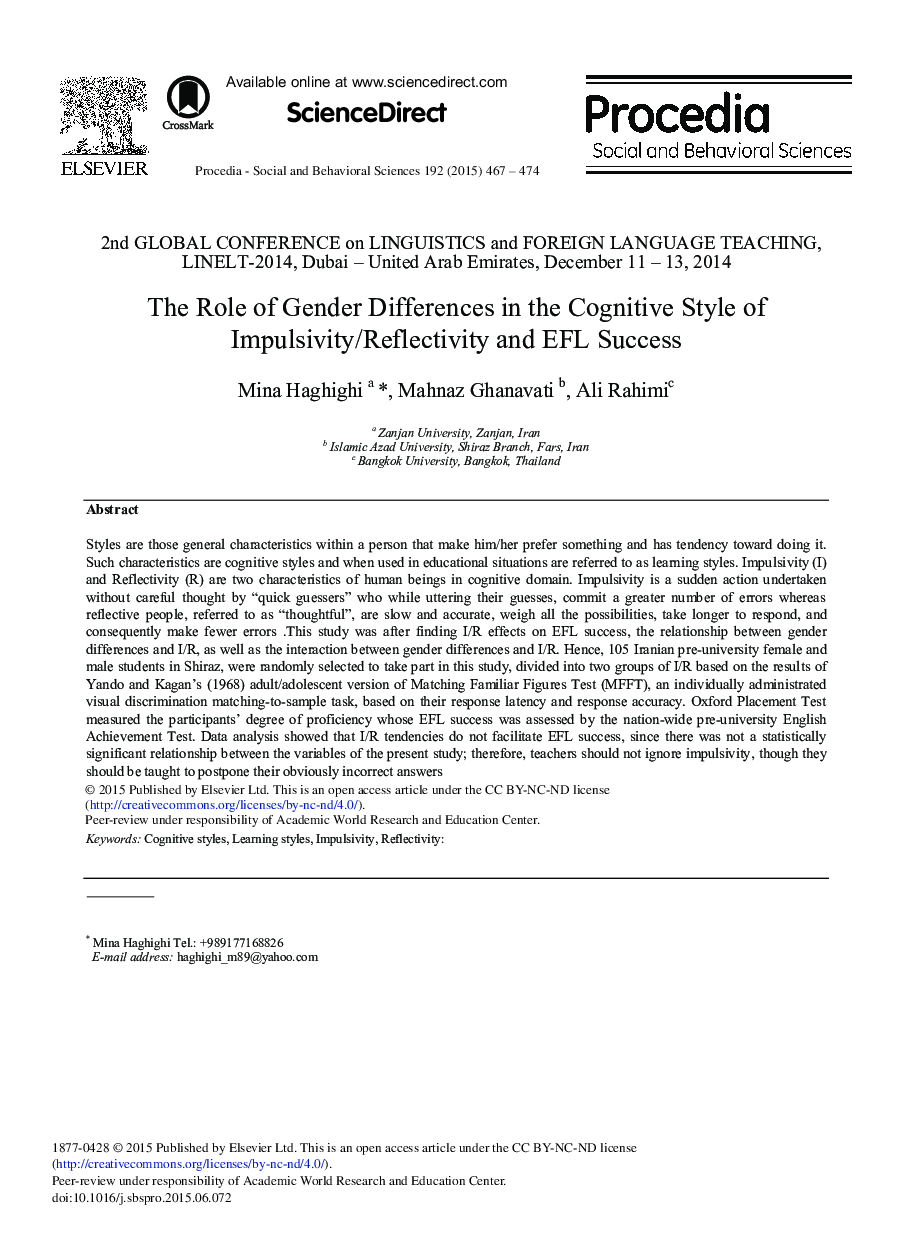| کد مقاله | کد نشریه | سال انتشار | مقاله انگلیسی | نسخه تمام متن |
|---|---|---|---|---|
| 1109283 | 1488367 | 2015 | 8 صفحه PDF | دانلود رایگان |

Styles are those general characteristics within a person that make him/her prefer something and has tendency toward doing it. Such characteristics are cognitive styles and when used in educational situations are referred to as learning styles. Impulsivity (I) and Reflectivity (R) are two characteristics of human beings in cognitive domain. Impulsivity is a sudden action undertaken without careful thought by “quick guessers” who while uttering their guesses, commit a greater number of errors whereas reflective people, referred to as “thoughtful”, are slow and accurate, weigh all the possibilities, take longer to respond, and consequently make fewer errors . This study was after finding I/R effects on EFL success, the relationship between gender differences and I/R, as well as the interaction between gender differences and I/R. Hence, 105 Iranian pre-university female and male students in Shiraz, were randomly selected to take part in this study, divided into two groups of I/R based on the results of Yando and Kagan's (1968) adult/adolescent version of Matching Familiar Figures Test (MFFT), an individually administrated visual discrimination matching-to-sample task, based on their response latency and response accuracy. Oxford Placement Test measured the participants’ degree of proficiency whose EFL success was assessed by the nation-wide pre-university English Achievement Test. Data analysis showed that I/R tendencies do not facilitate EFL success, since there was not a statistically significant relationship between the variables of the present study; therefore, teachers should not ignore impulsivity, though they should be taught to postpone their obviously incorrect answers
Journal: Procedia - Social and Behavioral Sciences - Volume 192, 24 June 2015, Pages 467-474